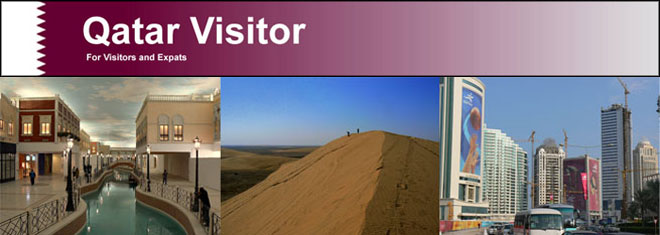Medina 626 CE
The sun blazes down in the desert, upon the heads of the goats and camels. Herders watch the animals, sheltering under the sparse shade of date palms. Despite the blistering heat, they have had nothing to eat or drink since the morning. They are following the new rules of their prophet Mohammed, and, like him, they will not eat till sunset, when they will break their fast with a little water and a few dates.
Qatar 2007 CE
As I write it is the end of summer here in Qatar, and the outside temperature, though not matching the height of summer when it could reach a humid 50 degrees Celsius, is barely bearable.
Yet the majority of people in Qatar are fasting. Not only do they abstain from food, tobacco and sex, they will also not touch a drop of water from dawn to dusk, for this is Ramadan, the Muslim fasting month.
Not only are Muslims fasting. Many non-Muslims, often motivated by curiosity are fasting too. One question that has arisen in recent online discussion in Qatar Living is whether fasting is healthy.
Given the much greater hardship that suffered by the first followers of Mohammed, this may seem a little frivolous. After all, many Muslims in Qatar can retreat to their air-conditioned houses or apartments in the heat of the day – although for fasting labourers, hardship may be just as great as it was in Mohammed’s day.
Paradoxically, though, many of the problems that practitioners suffer today is from overeating. When we fast, our body assumes there is a shortage of food, and our metabolic system slows down to conserve energy. When we do eat, more food than normal is converted into fat, and therefore less food than normal should be necessary to maintain a healthy diet.
Despite this, more food is consumed during Ramadan than at other times, and many people put on weight during Ramadan.
People fasting may also suffer from gastronomic problems. These can be exacerbated by feasting on sweets, fried food and spicy dishes. To deal with this, fasters should eat food high in fibre such as brown rice or bread.
Fast digesting food that contain sugar can be taken at Iftar, when Muslims break the fast, as they replace blood sugar levels. At Suhur. the pre-dawn meal taken before fasting begins, people should eat foods that contain complex carbohydrates. These take longer to digest, providing energy throughout the day. Foods containing complex carbohydrates include wholegrain bread, oats and muesli.
Dehydration is obviously a danger in this heat. To prevent dehydration, fasters can consume dehydrations fluids before and after fasting. Sports drinks also contain the electrolytes lost when the body becomes dehydrated. See our website article on Recognising, Treating and Avoiding Dehydration for more information.
Despite our modern knowledge of nutrition, one of the best things people fasting can do is to follow Mohammed’s example and break their fast with some water and a few dates. Dates contain potassium and magnesium, some of the minerals lost when the body become dehyrated, as well as tanin and fibre to counter gastronomic problems, and sugar to replace blood sugar levels.
So, happy fasting - the healthy way!
Qatar Visitor e-store (U.S.)
Qatar Visitor E-store (U.K.)
Find the best deal, compare prices and read what other travellers have to say about Qatar
Tags
Qatar Doha Middle East Ramadan Fasting Health


